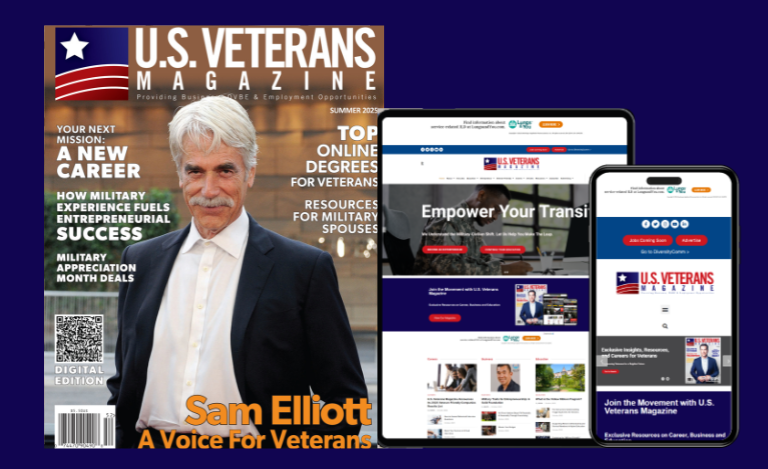
and Careers for Veterans





Join the Movement with U.S. Veterans Magazine
Exclusive Resources on Career, Business and Education

Subscribe for the print edition
For many, higher education is a transformative journey, a way to better oneself and an opportunity for personal growth. For some,…
Being a military spouse means juggling a lot—PCS moves, deployments, solo-parenting, and a calendar full of unpredictability. So when there’s a…
Explore Topics
Update: The United States Army marked a major milestone—its 250th birthday—with a grand parade in the heart of Washington, D.C. on…
Heritage Distilling Company, Inc. (HDC), a leading craft distiller of innovative premium brands, isn’t just known for its award-winning flavors or…
Finding the perfect place to call home is important for everyone — but for disabled veterans, it’s even more crucial. After…
Music has long been a source of connection, healing,…
Watch Below: Explore Exciting Career Opportunities at Leidos
Watch Below: Gary Sinise Promotes U.S. Veterans Magazine at Veteran Event
Watch Below: U.S. Veterans Magazine publisher Mona lisa faris talks vets in sports
Find your opportunity with
THE VETERAN Newsletter!
Access an array of opportunities and stay informed on the latest news and events for the veteran community.

